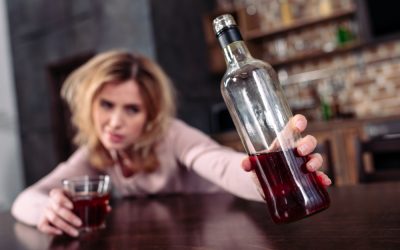As a passionate advocate for science-based content, she loves writing captivating material that supports scientific research and education. In her spare time, you can often find her exploring nature with her husband and three children. A full understanding of the correlation between alcohol use and insomnia may provide a valuable and effective tool for assessing whether work performance is impaired. https://ecosoberhouse.com/article/alternatives-to-alcohol/ Based on your answers, we will calculate your free
Sleep Foundation Score
™
and create a personalized sleep profile that includes sleep-improving products and education curated just
for you. Ultimately, no two cases of insomnia are the same, and no treatment plan is right for everyone. Anyone experiencing insomnia should speak with a doctor to learn more about what treatments may work best for them.
- Out of the 237 people who took part in the experiment over separate sessions, all but one of them reported they had consumed some vodka.
- It is generally metabolized at a rate of 0.01 to 0.02 g% per hour (Arnedt et al., 2011b).
- Kaptchuk’s research also suggests that “open-placebo” treatments—when patients know they are receiving a placebo—are comparable in efficacy to deceptive placebo designs, when patients don’t know they are receiving a non-active pill or treatment.
The suprachiasmatic nucleus within the hypothalamus in the brain is the master clock that synchronizes a host of internal rhythms with the sleep-wake cycle being one of them. Light is the primary stimulus involved in synchronizing an organism’s internal rhythm in the circadian clock with the external environment. In addition to light, other cues such as physical activity or feeding are considered as non-photic cues that can be used to reset the circadian clock. Non-photic phase-resetting is the process of shifting and/or synchronizing the circadian clock using non-photic stimulus.
3. Assessment of Insomnia Disorder
Subjective complaints of insomnia may persist up to 2 years into sobriety (Cohn et al., 2003, Wellman, 1954, Kissin, 1979). Longitudinal studies evaluating PSG sleep have demonstrated the presence of increased SOL and sleep fragmentation, a decreased TST, and, abnormalities in SWS and REM sleep stages. Although increased SOL reached normal levels by 5–9 months into recovery, sleep fragmentation persisted for 21 months and consequently TST was seen to normalize in ≤ 2 years (Adamson and Burdick, 1973, Williams and Rundell, 1981, Drummond et al., 1998). Slow wave sleep is decreased early in recovery and gradually normalizes over time and around 2 years of sobriety (Williams and Rundell, 1981, Imatoh et al., 1986, Drummond et al., 1998). Sleep problems are common during this phase and may be prevalent in about 65% of individuals during this phase (Brower et al., 2001a, Kolla et al., 2014).
- People with insomnia often wake up tired and struggle with poor memory or concentration.
- A multidisciplinary team of health experts collected and analysed the data collected through the questionnaires administered regarding alcohol and sleep habits.
- Lifestyle changes such as avoiding alcohol hours before sleep may be sufficient for treating mild, short-term insomnia.
- Among factors that disturb sleep, it was learned that snoring, in particular, is linked with alcohol consumption.
- All day every day, what we think is changing the way we feel and how our bodies function in significant ways.
We performed chi-square tests and independent sample t-tests to assess gender differences in initial reports of underlying disease, smoking status, exercise frequency, depressive symptoms, and anxiety symptoms. We used the Wilcoxon two-sample test to assess gender differences in AUDIT-KR scores. To investigate the relationship between global or component scores of the PSQI-K and AUDIT-KR scores, we performed the Mann-Whitney test. When you drink alcohol, it acts as a depressant for your central nervous system, meaning that it can cause brain activity to slow down. Moreover, it can take one hour for your body to process one serving of alcohol.
Selection of Studies
Those who have been diagnosed with alcohol use disorders frequently report insomnia symptoms. Though alcohol may help you fall asleep faster, it can disrupt the important REM stage of your sleep cycle, leading to lack of sleep or sleep disorders like insomnia. As a result, they does alcohol cause insomnia may consume alcohol to speed up falling asleep, but evidence shows this technique does not improve sleep quality. Although experts can’t be certain that alcohol directly causes insomnia, numerous studies have found a link between this sleep disorder and alcohol consumption.

